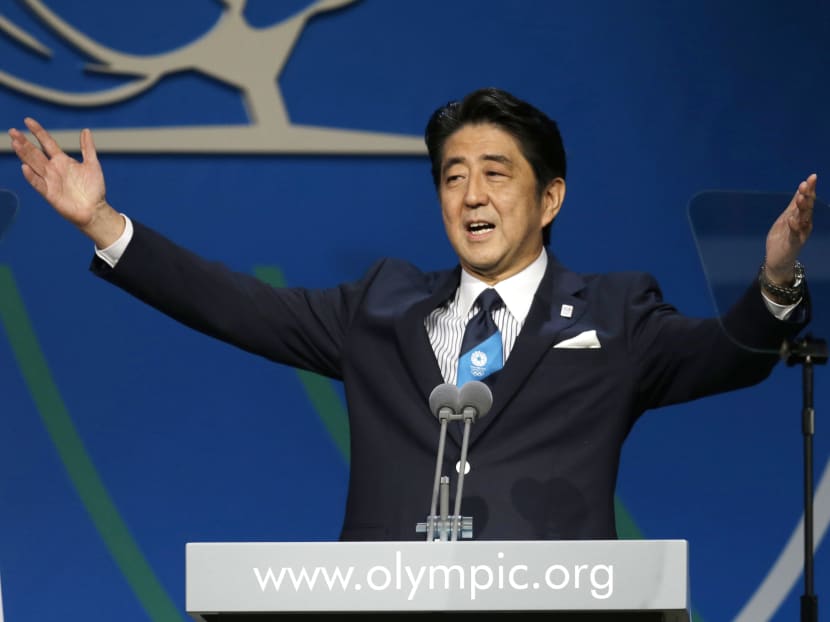Japan PM’s Fukushima remark backfires at home
TOKYO – Japanese Prime Minister Shinzo Abe’s reassurance to the International Olympic Committee that contaminated water leaks from the crippled Fukushima nuclear plant are “under control” has backfired at home.

Japan's Prime Minister Shinzo Abe, addresses the International Olympic Committee session during the Tokyo 2020 bid presentation in Buenos Aires, Argentina, Saturday, Sept 7, 2013. Photo: AP
TOKYO – Japanese Prime Minister Shinzo Abe’s reassurance to the International Olympic Committee that contaminated water leaks from the crippled Fukushima nuclear plant are “under control” has backfired at home.
Just hours before Tokyo was chosen on Sept 7 to host the 2020 Olympics, Mr Abe gave an emphatic speech declaring that radioactive contaminants from the leakage had no impact to waters outside the bay near the plant and “will never do any damage to Tokyo”.
The Japanese media and opposition lawmakers have suggested that Mr Abe’s comments were overkill.
“Contaminated water `control’ running astray,” the nationwide Asahi newspaper said in its front-page top story today (Sept 14). “Credibility of prime minister’s message to overseas is shaking.”
Mr Hikariko Ono of the prime minister’s office defended Abe’s pledge, citing offshore monitoring results showing undetectable radioactivity. The government has stepped up efforts to contain the leaks.
In a meeting with opposition Democratic Party of Japan lawmakers yesterday, senior TEPCO official Kazuhiko Yamashita said the water situation was “not under control”, appearing to contradict Mr Abe. DPJ leaders said they will demand Mr Abe clarify his IOC speech.
TEPCO later issued a statement to explain that what Mr Yamashita meant was isolated incidents such as tank leaks and did not dispute Mr Abe’s comment.
Japanese officials have acknowledged that the ground water contaminated with radioactive leaks from the melted reactors has been seeping into the ocean since soon after the March 2011 disaster. Recent leaks from storage tanks holding radioactive water have also added to concerns.
The plant has been reporting spikes in radioactive tritium from underground water samples near a major tank leak last month. TEPCO said today tritium in the latest sample measured 150,000 becquerels per liter, more than twice the limit allowed for release into the ocean.
Experts generally agree that overall impact from the contamination gets diluted becomes negligible as it further spreads into the sea.
Former US nuclear regulator and an outside advisor to TEPCO Lake Barrett agrees with Mr Abe.
“Now, to get into a little, tiny detail about it, is there a little, tiny bit of runoff that may have cesium in it? The answer is, yes there is, but that’s still under control from a public health and safety and environmental protection point of view,” he told the Associated Press. AP






